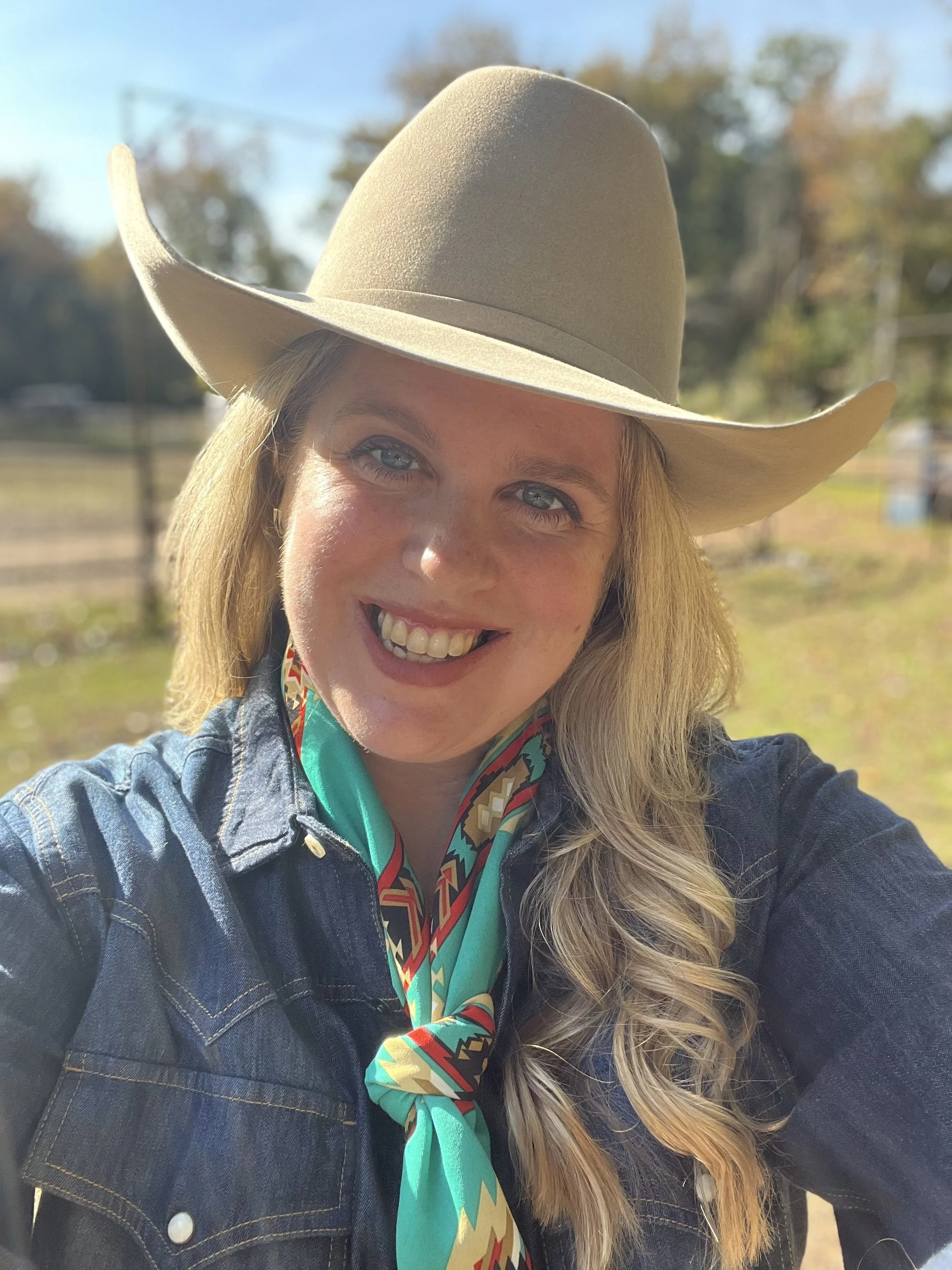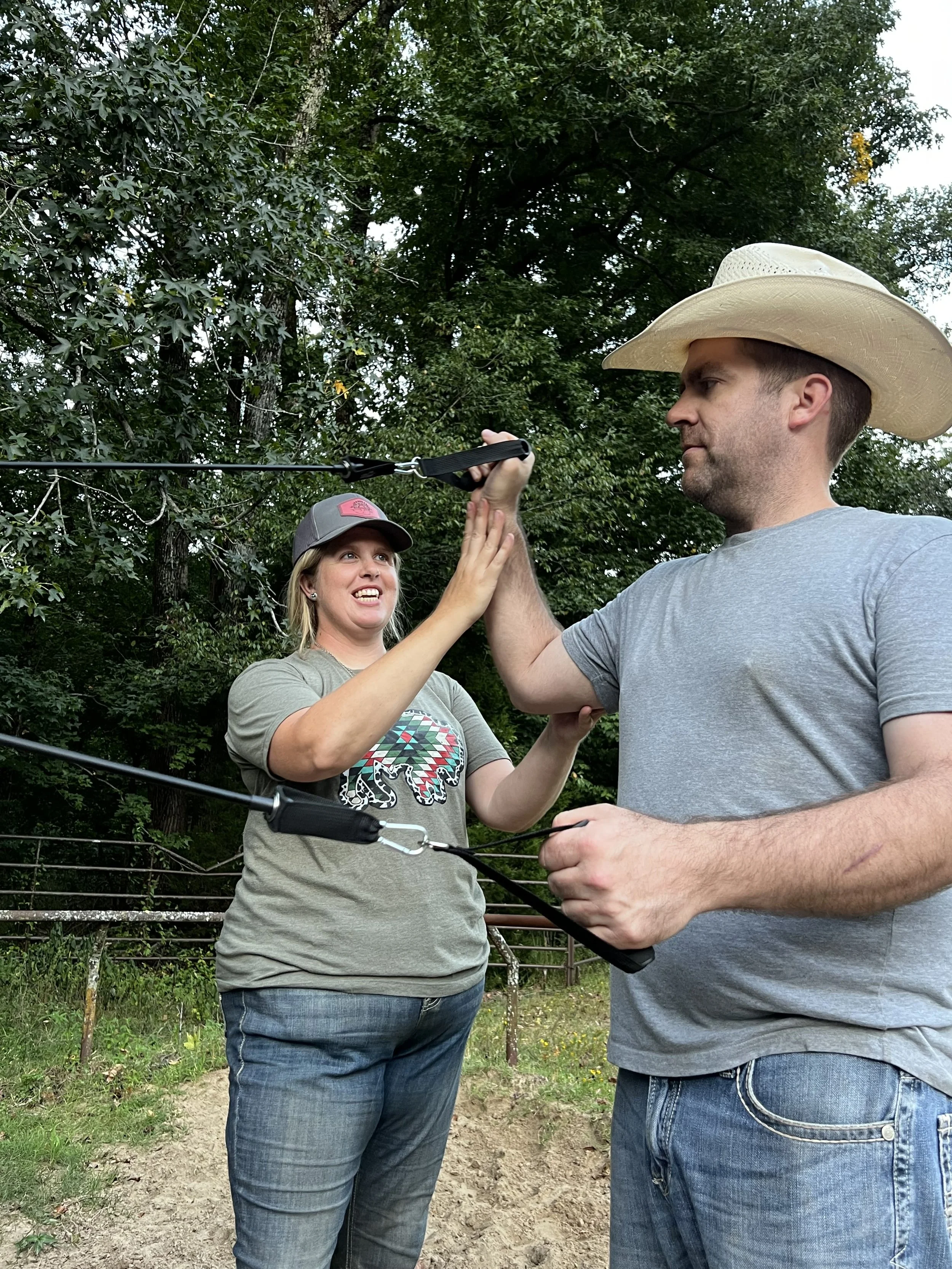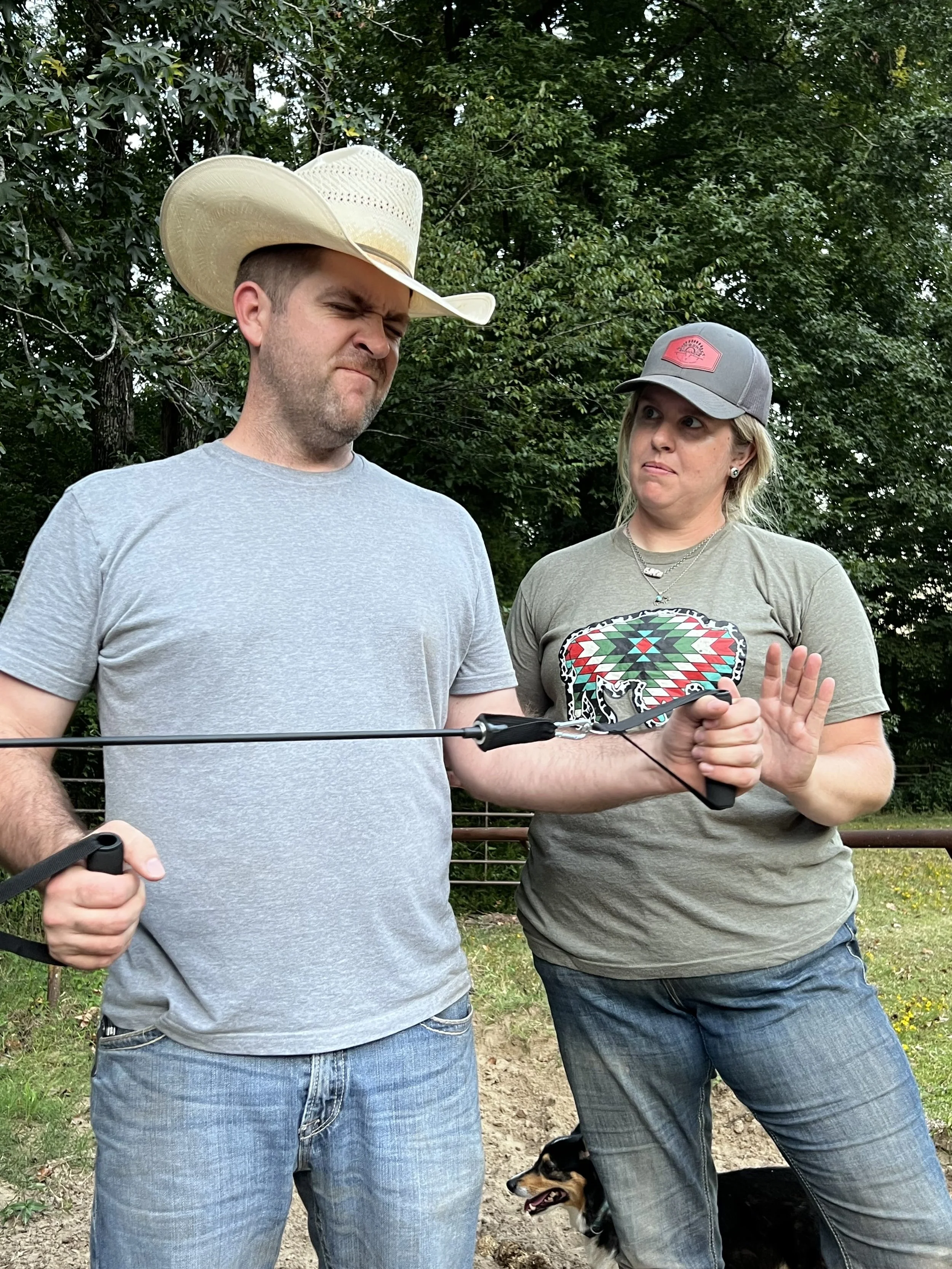A New Prescription for Rural Health: Therapy at the Barn Door
Farley Schweighart, Rural MedEx founder.
On a harvest afternoon, a farmer was struggling to get through his day. He had been working through the pain, as most farmers do, until a traveling physical therapist pulled into the driveway. Two visits later, the man was back in the field, his back strong enough to finish the season.
That memory lingers with Farley Schweighart, a physical therapist who grew up in rodeo arenas and farmyards where bodies give out long before the work does. It is the kind of story that shaped her vision for Rural MedEx, a fledgling practice serving patients — and sometimes their horses — across Oklahoma and Arkansas.
“My dad had three shoulder surgeries in 10 months on his roping arm,” Schweighart said. “Watching him work with his physical therapist to get back to the arena planted something in me. I saw what it meant to have someone who understood both the body and the lifestyle.”
Schweighart is now taking that understanding door-to-door — or more accurately, barn-to-barn — with a business designed to meet rural residents on their own terms. Instead of requiring patients to drive hours to a clinic, Rural MedEx is mobile, offering cash-based musculoskeletal care in living rooms, hayfields, and stock trailers.
Farley Schweighart, Rural MedEx founder, and her client.
Her patients are the people who make up the backbone of the rural economy: farmers, ranchers, cowboys, cowgirls — and the animals that carry them. Alongside treating human clients, Schweighart works on horses, believing that improving a rider’s mobility while also loosening a stiff hock or sore shoulder on the animal produces better outcomes for both.
Building from the Ground Up
Like any rural start-up, Schweighart faces the challenge of not just delivering care but convincing her neighbors that healthcare can be personal, tailored, and worth paying for directly. Her first-year goal is straightforward: fill 25 patient slots per week between in-person and telehealth visits, enough to sustain the model while proving its value in small communities.
What she lacks in marketing muscle she makes up for in grit. “Burnout is real in healthcare,” she said. “I was pouring myself into patients, trying to fix a system that’s bigger than me. Finally, I realized I couldn’t save all of healthcare — but I could make my little corner of it work the way I believe it should.”
Now, with help from the Rural Gone Urban Foundation, Schweighart has new backing to tell her story beyond word of mouth. The nonprofit awarded her a $5,000 small business grant to fund marketing assets — a modern website, a digital strategy, and targeted advertising — and brand strategy coaching. The grant is designed to help entrepreneurs like Schweighart cut through the noise of today’s crowded marketplace and reach the audiences who need them most.
Meeting People Where They Are
The cash-based model of Rural MedEx, Schweighart argues, actually saves money for patients. Without insurance paperwork dictating the number of visits or the body parts covered, she can treat multiple issues at once and often shorten the course of care.
Equally important is the convenience. “If you’re hauling hay or riding pens all day, you don’t have time to drive an hour to therapy,” she said. “When I come to you, the follow-through is better. The results are better. And it respects the way people actually live out here.”
For now, Schweighart is a one-woman operation. Down the road, she hopes to hire physical therapy assistants licensed in both Arkansas and Oklahoma to expand her reach. She also envisions building a library of online resources — from YouTube tutorials to affiliate-based education tools — and, eventually, developing speaking opportunities to bring more visibility to the needs of rural patients.
The Long Road Ahead
The path to sustainable rural healthcare is steep. Schweighart is not naïve about the challenges: winning trust in tight-knit communities, carving out digital space in a saturated wellness industry, and balancing the demands of entrepreneurship with the personal calling that pulled her into medicine in the first place.
Still, she insists that Rural MedEx is not just a business plan, but a way of life. “My why is living in flow with my passion and purpose,” she said. “For me, that means authenticity, health, horses, and happiness. God wrote this story, and I just get to live it.”
With a battered pickup truck as her clinic and a laptop as her front desk, Schweighart is betting that rural America will welcome a healthcare provider who knows the difference between a frozen shoulder and a roping one.
And for the farmer who climbed back onto his combine, the proof is already in the harvest.
The Rural Gone Urban Foundation’s Small Business Grant Program exists because of donors who believe in strong women with big dreams. Every dollar given goes directly toward funding grants, scholarships, and Love Bombs. If you’d like to help fuel the next business launch or keep this program growing, your support makes it possible.



